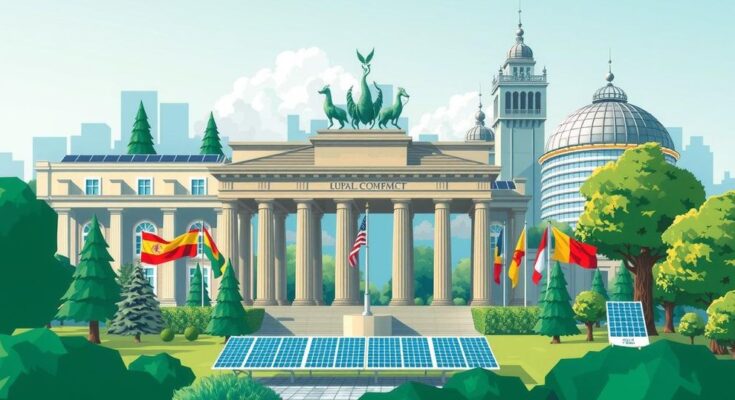The 16th Petersberg Climate Dialogue, held on 25 and 26 March in Berlin, is a pivotal event aimed at preparing for the UN Climate Change Conference (COP30) in Brazil. This gathering of ministers, uniting representatives from vulnerable nations like small islands and least developed countries and major G20 industrialised ones, seeks to forge collective strategies addressing urgent global climate challenges. With around 40 countries invited by Foreign Minister Annalena Baerbock and COP President-Designate André Corrêa do Lago, the dialogue aims to solidify political will towards ambitious climate commitments.
Marked by the World Meteorological Organization’s alarming declaration that 2024 will likely see a mean global temperature rise above 1.5°C, this year’s dialogue holds unprecedented significance. It also marks the first ministerial climate meeting since the US retracted from the Paris Agreement. The central goal is to explore avenues for enhanced international cooperation and accelerate the shift towards climate-neutral economies, thereby reinforcing confidence in multilateral climate efforts as groundwork for COP30.
The forthcoming COP30’s success hinges on bolstering emissions reduction measures. Nations that are signatories of the Paris Agreement will be urged to submit updated climate goals known as nationally determined contributions (NDCs), aligning with the 1.5°C target. Climate action transcends environmental discussions, influencing global security by exacerbating existing conflicts and potentially inciting new challenges.
Economically, the impact of aggressive climate policy is underlined by an OECD and UNDP report which indicates that ambitious NDCs may catalyse stronger economic growth, improve health and energy security while alleviating poverty compared to conventional pathways. Thus, active climate measures not only safeguard the environment but also stimulate economic advancement.
With resistance intensifying against climate initiatives, the urgency to maintain the 1.5°C target becomes paramount. The Petersberg Climate Dialogue is set to facilitate the journey towards COP30 in Belém, supporting Brazil’s ambitious climate agenda. The dialogue will also address significant global aims established during COP28, such as the transition from fossil fuels, enhancing renewable energy capacity, and the crucial topic of climate finance and adaptation, especially for emerging and developing nations, ensuring enhanced funding for climate initiatives.
Additionally, discussions will focus on improving the efficacy of climate conferences and reinforcing the implementation of the Paris Agreement, which continues to guide global efforts toward a sustainable, climate-neutral future involving more than 190 countries, including Germany and the EU.
The 16th Petersberg Climate Dialogue in Berlin, occurring on 25-26 March, is crucial for COP30 preparations. It aims to bring together ministers from vulnerable nations and G20 countries to discuss urgent climate issues, focus on emissions reduction, enhance global cooperation, and reinforce the implementation of the Paris Agreement. The event is set against the backdrop of alarming climate statistics, urging immediate action to achieve climate neutrality and economic growth.
The 16th Petersberg Climate Dialogue serves as a crucial platform ahead of COP30, uniting key global players to tackle pressing climate issues. The dialogue aims to foster stronger commitments to reduce emissions, accelerate transitions to renewable energy, and address the economic implications of climate policy. With the challenges of rising temperatures and political resistance, this event underscores the urgent need for cohesive international action to fulfil the ambitious targets established in the Paris Agreement.
Original Source: www.auswaertiges-amt.de



